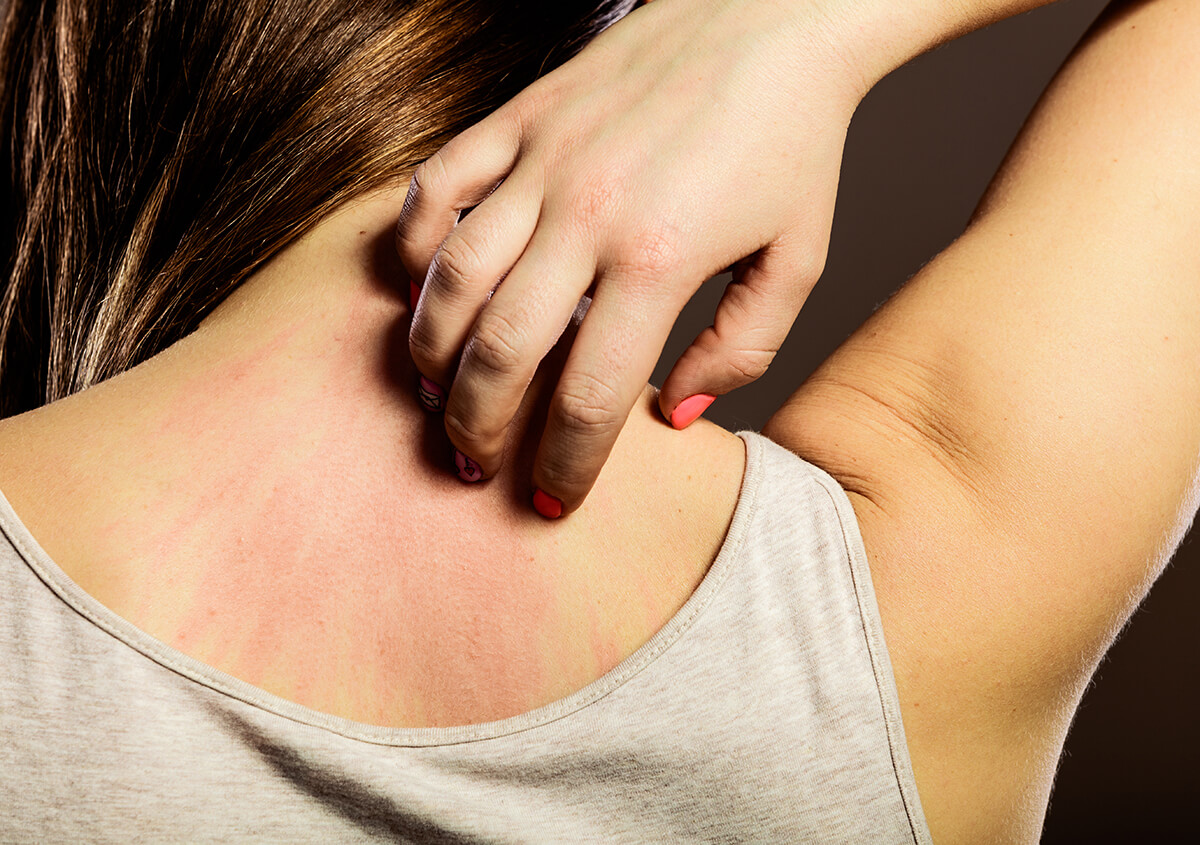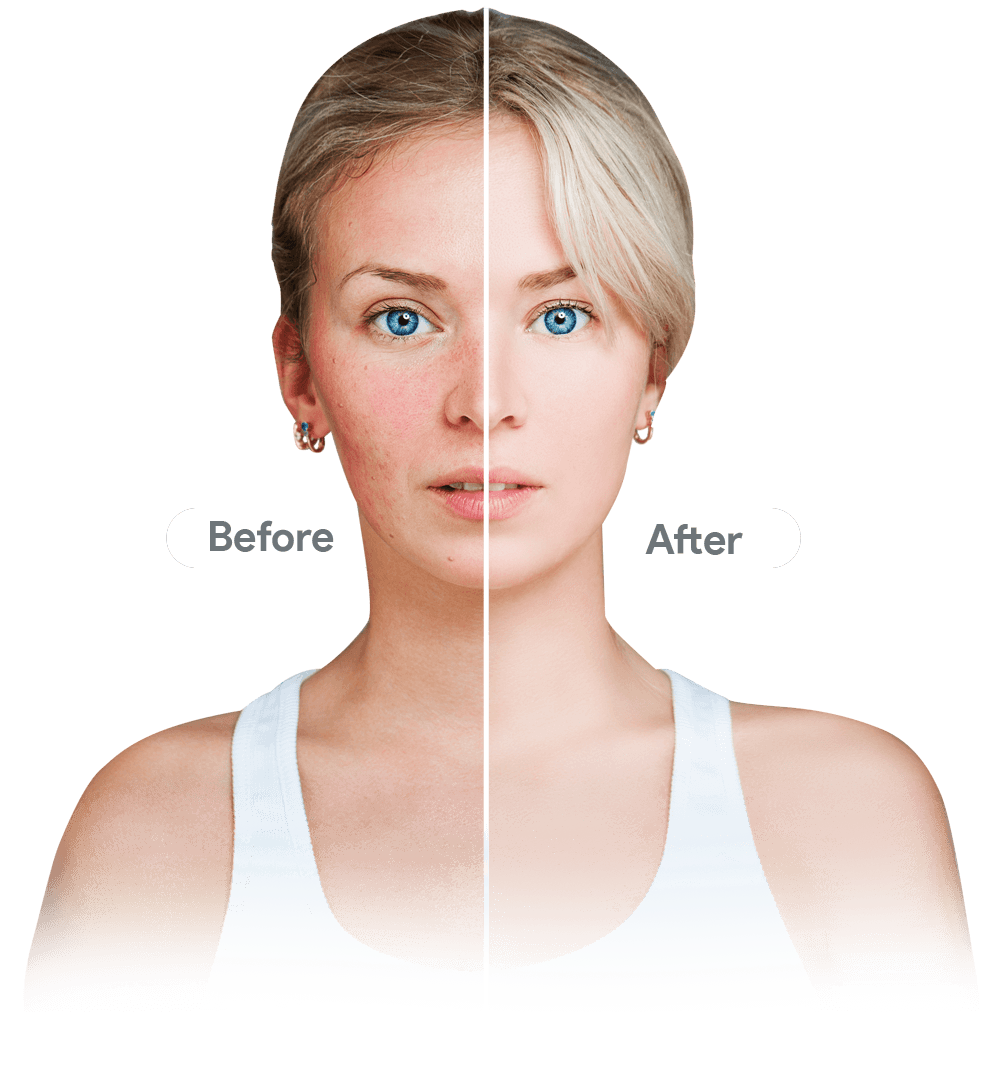
Eczema, also called atopic dermatitis, is a common skin condition, characterized by dryness and itchiness. According to common wisdom, it is worst in winter, due to the dehydrating effect of cold weather. That is true in many cases, but every person’s skin is different. For some people, winter is soothing, but in springtime eczema returns. Others suffer with multiple seasonal eczema triggers.
At DSA Dermatology in Plano, TX we offer a wide range of skin treatments. We also consider patient education one of our most important services. Understanding your skin is the key to controlling conditions such as eczema and maintaining healthy skin all year long.
How weather affects eczema
Despite being quite thin and delicate, the skin acts as our coat of armor. It protects the body from toxins, irritants, environmental conditions, and more. This is possible because the surface of skin serves as a protective barrier, similar to the paint on a building. However, eczema compromises the health of skin, and the effectiveness of its own natural protection. It gets dry, flaky, and sometimes cracks. Like peeling paint, it becomes quite susceptible to harsh weather.
Eczema irritants and triggers are a little different for each person. They can include heat, cold, high humidity, extremely dry air, sun, seasonal allergens, exposure to wind or rain, and more. For some people, several or all these things can trigger eczema. Additionally, there can be indirect effects, because our behavior patterns change with the seasons. In spring and summer, we spend more time outside, wear different fabrics, use insect repellents, and often eat different foods. Seasonal hobbies such as swimming, hiking, or gardening can also introduce a host of potential skin irritants.
What is hay fever rash?
If you have eczema, there is a good chance that you also have hay fever (allergic rhinitis) and asthma. These conditions occur together so commonly that doctors have dubbed them the “atopic triad.” That means springtime coughing, wheezing, sneezing, and watery eyes are often accompanied by skin irritation.
Hay fever rash is an umbrella term used to describe several types of seasonal skin conditions.
- Allergic contact dermatitis – This type of rash can develop if you’ve touched a plant or substance that you are allergic to.
- Hives – Also a direct result of allergies, hives can be triggered by contacting, inhaling, or ingesting certain allergens.
- Eczema – Although this condition is not a direct allergic reaction, pollen can aggravate it. Additionally, many people are more likely to experience eczema flare-ups when suffering from severe allergy symptoms.
Keeping eczema under control in spring and summer
 If you notice an uptick in eczema symptoms during hot, humid weather, follow these skin care tips for seasonal changes.
If you notice an uptick in eczema symptoms during hot, humid weather, follow these skin care tips for seasonal changes.
- Rinse and hydrate – Virtually anything that dries and irritates skin can trigger eczema. This includes dust, pollen, sweat, chemicals, and other substances that cling to the surface of your skin. The longer they remain there, the more irritation they will cause. If you think you’ve came into contact with an allergen or irritant, gently rinse the area with cool water as soon as possible. Equally important, apply a quality moisturizer immediately thereafter.
- Identify seasonal triggers – When you are having a “bad skin day,” make note of the weather and your activities. Does this happen when it is especially humid, or when you are in direct sunlight? If so, try to plan outdoor activities on days with skin-friendly weather. Also beware of ingredients in sunscreen or insect repellents. When you are trying a new product, test it on a small area and wait a while. If you notice an adverse reaction, try a different formula.
- Minimize sweating – Yes, that is a tall order during sweltering Plano summers. However, sweat contains salt, which is extremely drying. Plan workouts during the cooler hours of the day, use air conditioning liberally, and stay indoors if you need to. When sweating is unavoidable, clean skin promptly as described above.
- Be sun-safe – While direct sun exposure is an eczema trigger for some people, others find it soothing. In fact, sunshine is a folk remedy for many skin conditions. While it is true that UV light has healing properties for eczema, that doesn’t change the risk of cancer, premature aging, and other harmful effects. Instead of lounging on the beach without sunscreen, talk to your dermatologist about UV treatments, which are administered in a safe and controlled environment.
If these precautions don’t keep your eczema under control, call us at (972) 362-9567 and schedule an appointment.
Why Choose DSA Dermatology?
At DSA Dermatology, we bring to you the best of not one but three leading dermatologists in Plano TX,



At DSA Dermatology, we bring to you the best of not one but three leading dermatologists in Plano TX, Dr. Daniel S. Achtman, Dr. Carmine G. McConnell and Dr. Jordan. Achtman.
Dr. Achtman is a board-certified Dermatologist with over three decades of experience. Having graduated from the medical school of McMaster University, he also studied at the UTSW Medical Center in Dallas, TX where he also served as Chief Resident in the Department of Dermatology. In addition to possessing extensive training and experience in cosmetic enhancement techniques, Dr. Achtman is widely known as a leading expert in the diagnosis and treatment of various skin cancers. He is an active member of the American Society for Dermatologic Surgery. Dr. Achtman goes the extra mile to understand your medical concerns and to ensure that he helps you meet your unique aesthetic goals.
Dr. Carmine G. McConnell is a board-certified physician in Plano TX. Having been trained at McMaster University, Canada, she went on to earn her board certification in Texas. Having served as Chief of Staff of her department at Plano Medical Center, she has over two decades of experience in practicing medicine in her practice and while assisting Dr. Achtman in the practice of dermatology. In addition to her extensive postgraduate training in laser therapy and aesthetic surgery, among other procedures, she possesses vast experience in both cosmetic dermatological techniques and family medicine. As a conscientious and caring physician, Dr. McConnell provides her patients with customized non-surgical treatments to help address health and aesthetic concerns related to the skin. She is also keen on helping patients understand their skin and how it can be cared for and protected.
Dr. Jordan Achtman is a board-certified dermatologist in DSA Dermatology at Plano, TX. Dr. J. Achtman graduated from the University of Pennsylvania in Philadelphia and completed his residency in dermatology at UT Southwestern. His expertise spans general, surgical, and cosmetic dermatology. Dr. J. Achtman also has various special interests including chronic itch, infectious diseases of the skin, and the relationship between mental health and skin health. He is also very keen on helping patients form healthy skincare regimens and habits. In the hands of Dr. J. Achtman, you can be assured of innovative and cutting edge solutions for all your skin concerns.


